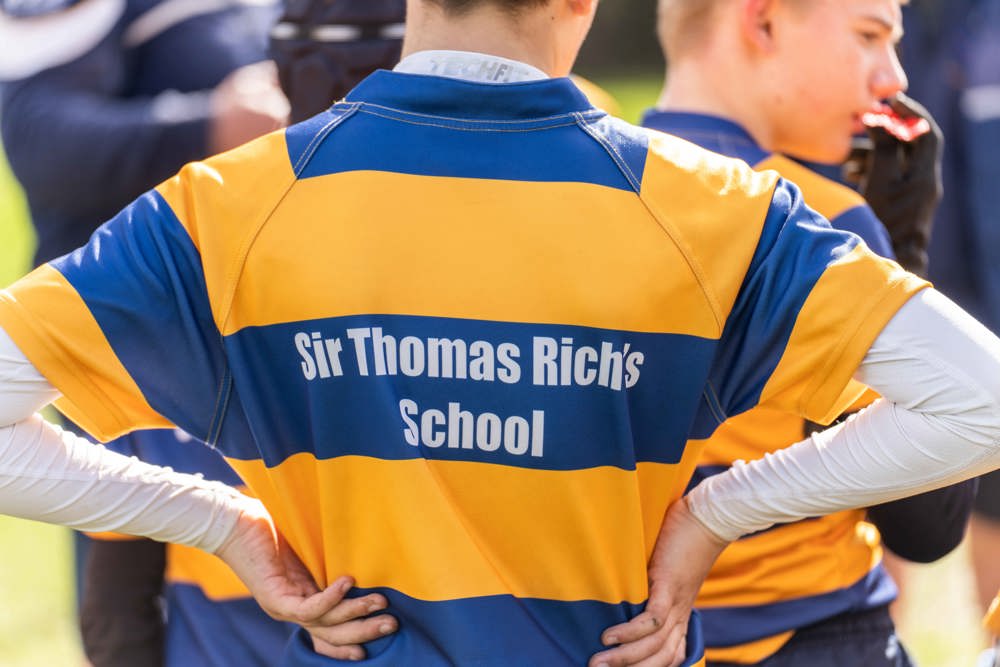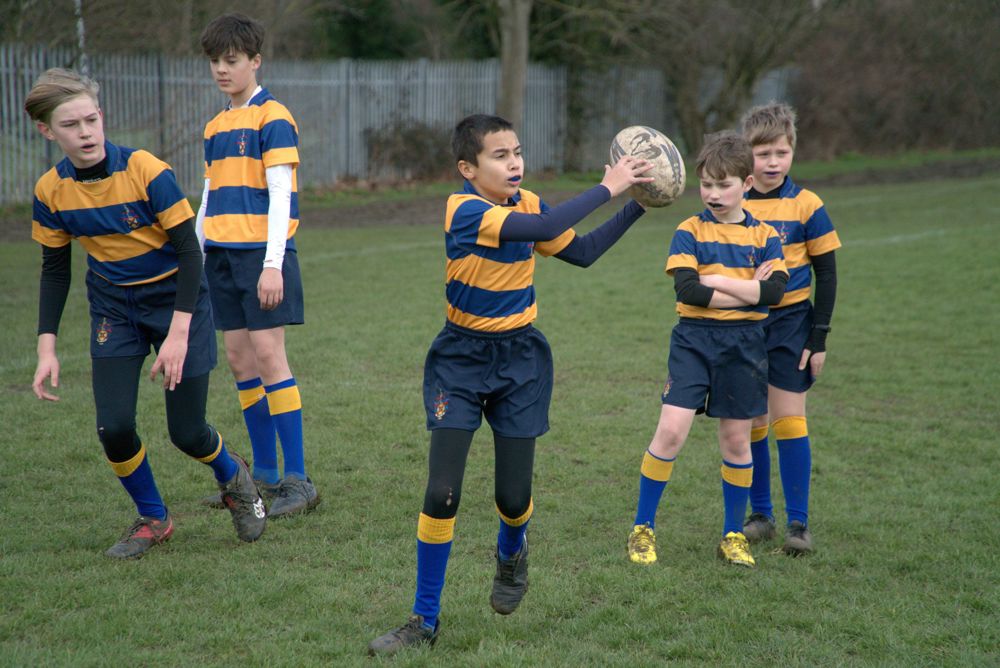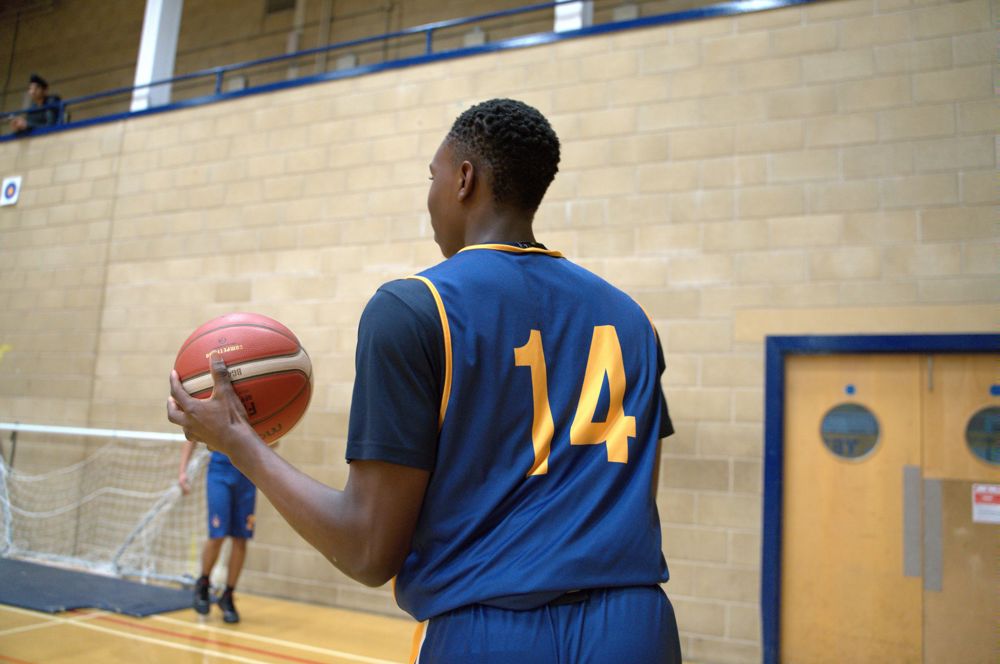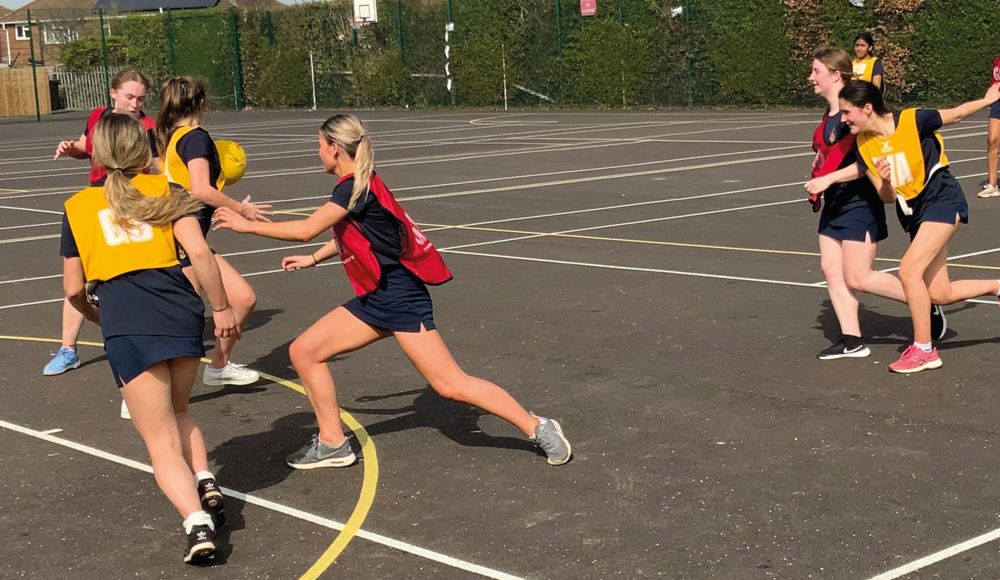
PE & Games
Students have separate PE and Games lessons, and can choose to study PE as an academic discipline from Key Stage 4. In PE lessons, students are encouraged to not only learn how to stay fit and healthy, but to embed those principles into their everyday lives. They learn about anatomy and take part in a variety of activities, including tennis, swimming, basketball, gymnastics, and fitness training.
One of our key priorities is to maintain and enhance our reputation for sporting excellence, while promoting participation in sport for fun, friendship and the health benefits of doing so, regardless of ability. Games lessons provides an opportunity for all students to experience both team and individual sports, which can help to develop fitness levels and develops traits such as teamwork, commitment and endeavour. This complements our extensive extracurricular sporting program.

Key Stage 3
Pupils have two periods of PE and two periods of Games in every fortnight. Students are required to supplement their fitness conditioning outside of lessons, and are encouraged to take part in extracurricular sport, including rugby, football, badminton, athletics, swimming, cricket and basketball. Assessments take place at the end of each half term.
Year 7 and 8
Physical Education: Gymnastics. Swimming. Basketball. Tennis. Athletics. Games: Rugby. Cross Country. Cricket.
Year 9
Physical Education: Football. Swimming. Basketball. Badminton. Athletics. Health-related fitness. Games: Rugby. Cross Country. Cricket.

Key Stage 4
Those students who choose to study PE as an academic discipline follow the AQA GCSE Physical Education course and are taught for five periods a fortnight. Homework is set each week and typically involves independent learning and revision of key topics including anatomy and sports psychology. Assessment is by two papers, each of which comprise 30% of the marks and take 1 hour and 15 minutes. Paper 1: The Human Body and Movement in Physical Activity and Sport: Applied anatomy and physiology. Movement analysis. Physical training. Use of data. Paper 2: Socio-cultural Influences and Well-being in Physical Activity and Sport, covering: Sports psychology. Socio-cultural influences. Health, fitness and well-being. Use of data.
In addition, there is a Non-Examined Assessment which comprises 100 marks and 40% of the GCSE: Practical performance in physical activity and sport – one team activity, one individual activity and a third in either a team or in an individual activity. Students will be assessed on their analysis (15 marks) and evaluation (10 marks) of performance to bring about improvement in one activity. The NEA is assessed by teachers and moderated by AQA.
All Key Stage 4 students have two periods of Games in a fortnight.
Year 10 GCSE PE
Applied anatomy and physiology. Movement analysis. Physical training. Use of data. Sports psychology. Socio-cultural influences. Health, fitness and well-being.
Year 11 GCSE PE
Applied anatomy and physiology. Movement analysis. Physical training. Use of data. Sports psychology. Socio-cultural influences. Health, fitness and well-being.
Year 10 & 11 Games
Rugby. Cross country. Basketball. Badminton. Health-related fitness. Football. Athletics. Cricket. Tennis.
Useful Links

Key Stage 5
Students follow the AQA A Level specification, with weekly homework tasks typically involving independent learning and revision. Assessment is by two written papers, each of which comprise 35% of the marks and take two hours. Paper 1: Factors Affecting Participation in Physical Activity and Sport: Applied anatomy and physiology. Skill acquisition. Sport and society. Paper 2: Factors Affecting Optimal Performance in Physical Activity and Sport: Exercise physiology and biomechanics. Sport psychology. Sport and society and technology in sport. In addition, a Non-Examined Assessment comprises 30 of the A Level and covers Practical Performance in Physical Activity and Sport. Students are assessed by teachers with external moderation as a performer or coach in the full-sided version of one activity. Plus written/verbal analysis of performance.
All pupils in the Sixth Form have Games for two periods a fortnight.
Entry requirement
Grade 6 in PE (if studied) or 6 in Biology or 7-7 in Double Award Science, plus a high level of practical ability in a sport.
Year 12 A Level PE
A Level Physical Education: Applied anatomy and physiology. Skill acquisition. Sport and society. Exercise physiology.
Year 13 A Level PE
Biomechanical movement Sport psychology Sport and society and the role of technology in physical activity and sport
Year 12 & 13 Games
Rugby. Netball. Cross Country. Hockey. Basketball. Badminton. Health-related fitness. Football. Athletics. Cricket. Tennis. Rounders.
Useful Links
Enrichment
We offer an extensive extracurricular sporting programme at Sir Thomas Rich's, and pupils play sport at all levels for fun, fitness and friendship, and take pride in representing their school. There are a number of sports tour available as a result, including the Rugby tour (recently to South Africa and Canada), the Netball tour (most recently Malta and Canada), Basketball (Northern Ireland) and Cricket (Jersey). House Cricket, Rugby and Netball competitions are keenly fought and are all popular with students either as participants or spectators.
Head of PE & Games
Nick O'Neil [email protected]